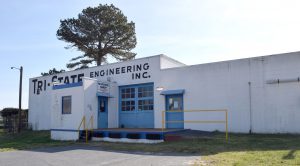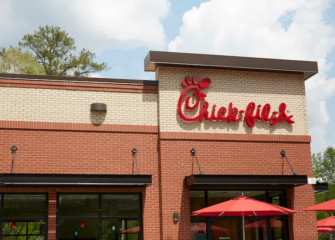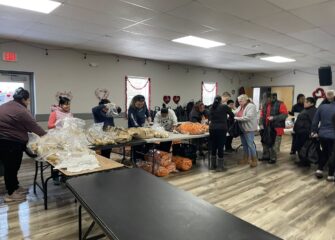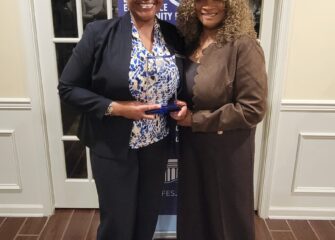
Seventy years ago Tri-State Engineering of Maryland, Inc. began earning a reputation for metalworking. Its sheet metal, machine and welding/fabrication shops created everything from dump truck and snow plow parts to equipment for making candy.
The former industrial site, now closed, is expected to reopen in late 2019, but this time as a home for artists. Salisbury University has purchased the property at 217 Milford Street with its 12,000-square-foot shop, nearly 3,000-square-foot office building and 1.18 acres of land bordering campus from the Guzey Family Limited Partnership. It will become the new home for SU’s blossoming three-dimensional arts programs, including glass blowing, sculpture and ceramics. The facilities will be more than double the amount of space currently available at Fulton Hall.
The $525,000 purchase was made with non-State dollars. “This addition to campus makes sense on several levels,” said Marvin Pyles, interim vice president of administration and finance. “The fabrication shop was built for the kind of work that sculptors working in metal, wood, glass and ceramics do. The sellers have left metal and fabrication equipment that these arts programs will be able to use.
“The site borders our athletics fields with a storage area that could be used by athletics’ maintenance and grounds crews. The property also is part of a well-traveled corridor, adjacent to the railroad track, which students use to move between east campus and nearby housing complexes. As part of its long-range facilities master plan, the University wants to construct a safe, user-friendly pedestrian-bike path near the rails. The Tri-State property will be part of that pathway.”
Most of all, the new purchase will provide sorely needed square footage for the arts. “Big industrial space is not common in Salisbury,” said Dr. Maarten Pereboom, dean of the Fulton School of Liberal Arts. “Artists can see the possibilities of such buildings.”
Currently, sculpture, glass and ceramics share 7,000 square feet of interior and exterior space at Fulton. SU’s 3-D enrollments have been growing steadily at a time when, nationwide, arts and humanities enrollments have been dropping. But at this stage, there’s no place to go. “We’ve maxed out the physical space; we can’t develop where we are anymore,” said Bill Wolff, director of the sculpture program.
Wolff and Steve Durow, director of the hot glass program, see real benefits in keeping the 3-D programs together. “This is the only sculpture program in Maryland that has access to hot glass,” said Wolff. (SU is believed to be one of only about 50 universities in the nation with hot glass.)
“One of the things we are most excited about with the new property is that large multi-use open space behind the building,” said Durow.
“A number of our processes, including iron casting, ceramic raku firing, stone carving and large-scale wood carving, really need to be outdoors,” Wolff said.
Looking to the future, the two would like to initiate a master’s program and bring in the community for events. There’s no shortage of ideas and enthusiasm to build enrollments and attract the public. But new space for students’ work is critical.
“Facilities make an impression,” Durow said. “They’re important for recruiting.” Tri-State is a significant step forward in that direction.
For more information call 410-543-6030 or visit the SU website at www.salisbury.edu.




